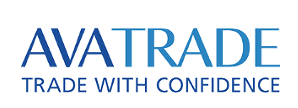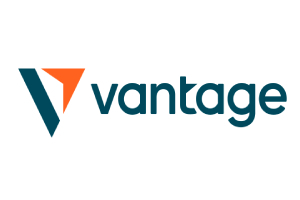Forex and stock trading may seem similar at first glance, but in reality, they operate on very different principles. Many beginners often start with stocks—buying shares in companies with the hope of long-term appreciation—before exploring the fast-paced world of forex. While both markets offer opportunities, forex stands out for its scale, liquidity, and accessibility.

Top Four Differences Between Forex and Stocks
| Forex market | Stock market |
|---|---|
| Trading volume of around $6.6 trillion/day¹ | Trading volume of roughly $16.7 billion/day² |
| Highly liquid | Less liquid (compared to forex) |
| 24-hour markets | 8-hour markets (exchange-based) |
| Minimal or no commission³ | Commission may apply³ ⁴ |
¹ BIS Triennial Report (2019); global forex (FX) data, liquidity varies by broker.
² World Bank (2019); stock markets generate $16.7 billion daily, and liquidity varies.
³ Additional fees may apply.
⁴ Some brokers offer commission-free stock trading.
Now, let’s take a closer look at what truly separates forex from equities.
Trading Volume
One of the clearest differences lies in size. Forex is massive—moving an estimated $6.6 trillion daily, mostly across major pairs like EUR/USD, GBP/USD, USD/JPY, and AUD/USD. Meanwhile, the combined average of all the world’s stock markets is only $16.7 billion per day.
This sheer volume benefits FX traders with faster order execution and more stable pricing. While both markets experience gaps or slippage, forex’s depth often makes entering and exiting trades far smoother.
Market Liquidity
High trading volume naturally creates high liquidity. And liquidity brings key advantages: tighter spreads and lower costs.
Major forex pairs usually carry very low spreads compared to individual stocks. As a result, FX often proves cheaper to trade, giving active traders a distinct edge.
24-Hour Markets
Accessibility is another striking difference. Forex operates as an OTC (over-the-counter) market, meaning trades happen directly between participants rather than through exchanges. With global business hours overlapping, forex stays open 24 hours a day, five days a week.
This round-the-clock access appeals to traders with busy schedules or those in different time zones. Stocks and indices, however, remain restricted to traditional exchange hours, limiting opportunities.
Minimal or No Commission
Cost structures also differ. In forex, most brokers don’t charge commissions, instead earning from the spread—the difference between buy and sell prices.
Stock trading often involves both spreads and commissions, particularly with major indices like the S&P 500. While some brokers offer commission-free trading, additional fees may still apply. FX traders, on the other hand, usually know their costs upfront thanks to transparent spreads.
Final Thoughts
At their core, forex and stock trading serve different purposes. Forex offers vast volume, deep liquidity, constant availability, and lower costs—making it highly appealing for active traders. Stocks, meanwhile, remain a strong choice for long-term investors who value ownership in real companies.
By recognizing these differences, you can decide which market best aligns with your strategy and trading goals.
Make money without lifting your fingers: Start using a world-class auto trading solution
- Broker
- Min Deposit
- Score
- Visit Broker
- Award-winning Cryptocurrency trading platform
- $100 minimum deposit,
- FCA & Cysec regulated
- 20% welcome bonus of upto $10,000
- Minimum deposit $100
- Verify your account before the bonus is credited
- Fund Moneta Markets account with a minimum of $250
- Opt in using the form to claim your 50% deposit bonus
Learn to Trade
Never Miss A Trade Again

Signal Notification
Real-time signal notifications whenever a signal is opened, closes or Updated

Get Alerts
Immediate alerts to your email and mobile phone.

Entry Price Levels
Entry price level for every signal Just choose one of our Top Brokers in the list above to get all this free.



